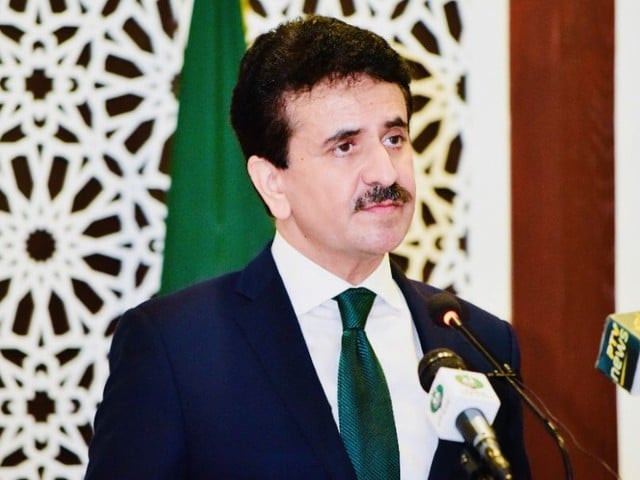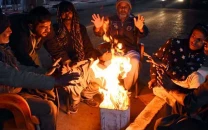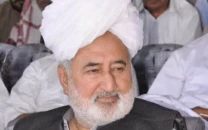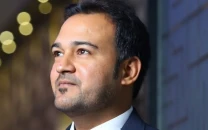Three-day Afghan peace moot from Saturday
FO says a number of Afghan leaders have already confirmed their participation in Islamabad talks

Pakistan on Thursday confirmed it would be hosting a three-day ‘Afghan Peace Conference’ beginning on Saturday (tomorrow) as part of Islamabad’s latest push to seek a political settlement of the decades-long Afghan war.
The conference would be attended by prominent Afghan leaders, Foreign Office Spokesperson Zahid Hafiz Chaudhri said. “As for Afghan Peace Conference, I can confirm that Pakistan is hosting the Afghan Peace Conference on 17-19 July,” he told a weekly news briefing.
A number of Afghan leaders, including former president Hamid Karzai; Salahuddin Rabbani, a former foreign minister; Omar Zakhilwal, a former finance minister; Haji Mohammad Mohaqiq, a senior leader of the Hazara minority community; Gulbuddin Hekmatyar, a former warlord-turned politician; and Ahmad Wali Masoud, have been invited to the conference.
Read more: Afghan Taliban offer three-month ceasefire in return for prisoner release
“A number of Afghan leaders have already confirmed their participation,” the spokesperson said.
The conference is taking place as prospects of seeking a peace deal are grim given the rapid gains made by Afghan Taliban since the US and NATO forces started withdrawing their troops. However, Chaudhry said: “The conference will provide momentum to the ongoing efforts for peace in Afghanistan.”
On Wednesday Prime Minister Imran Khan spoke to Karzai and extended him the invitation to attend the conference, while Pakistan’s Ambassador to Kabul Mansoor Khan had been meeting Afghan leaders from different parties and factions over the last several weeks, inviting them for the peace conference.
It is not clear whether the representatives of the Afghan Taliban will join the moot. However, most of the Afghan delegates attending the conference in Islamabad are part of the delegation, led by Afghan High Peace Council chief Dr Abdullah Abdullah, who will later travel to Doha for talks with the Taliban.
Pakistan’s diplomatic push to seek consensus among all the Afghan players is part of its efforts to prevent a civil war in Afghanistan. Pakistan is worried that a fresh phase of civil war will have huge implications for the country – the major worry is the influx of Afghan refugees.
Also read: Provincial Afghan govt, Taliban agree on ceasefire in Western Badghis
“Pakistan continues to host over 3 million Afghan refugees for over 4 decades. We are not in a position to cater to further influx of Afghan refugees, and for that peace and stability in Afghanistan are important,” Chaudhri said.
Pakistan is also concerned that any unrest in Afghanistan will embolden groups such as the banned Tehreek-e-Taliban Pakistan (TTP).
“The security situation in Afghanistan has a direct bearing on the security situation in Pakistan. Any security vacuum in Afghanistan can be exploited by spoilers. We have shared evidence of Indian use of Afghan soil for state-sponsored terrorism against Pakistan,” Chaudhri said.
Pakistan has always maintained that peace in Afghanistan is in Pakistan’s interest. “There are multiple reasons for our interest in peace in Afghanistan because economic integration and regional connectivity cannot be achieved without peace and stability in Afghanistan. Peace in Afghanistan is essential for successful implementation of regional connectivity initiatives,” Chaudhri added.
Responding to a question about the Taliban gaining control over Pakistan-Afghanistan border region, the spokesperson said that a large chunk of Pakistan-Afghanistan trade took place through the Spin Boldak crossing point.
“Additionally, this crossing point is used by over 20,000 people on a daily basis. The crossing helps sustain many Afghan families. It is therefore important that the border is re-opened as soon as possible,” he added.
Bus tragedy
On the killing of Chinese nationals, the spokesperson said investigations were under way and all aspects of the incident were being examined without ruling out any possibility.
Initially, the Foreign Office said the incident happened due to a mechanical fault in a bus that caused leakage of gas and then blast. However, Information Minister Fawad Chaudhry said on Thursday that some traces of explosives were found in the initial investigations.
China, meanwhile, said it would jointly investigate the incident and urged Pakistan to bring the perpetrators to justice. The spokesperson said Pakistan was in close contact with the Chinese side and extending all possible facilitation.



















COMMENTS
Comments are moderated and generally will be posted if they are on-topic and not abusive.
For more information, please see our Comments FAQ